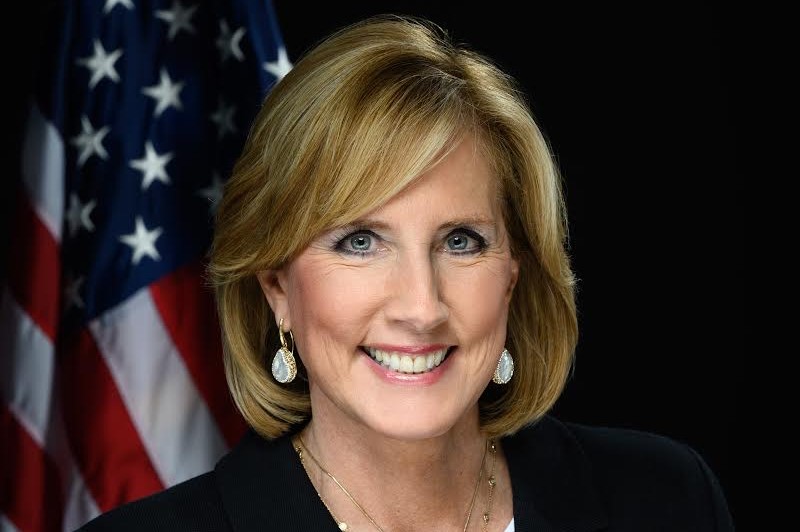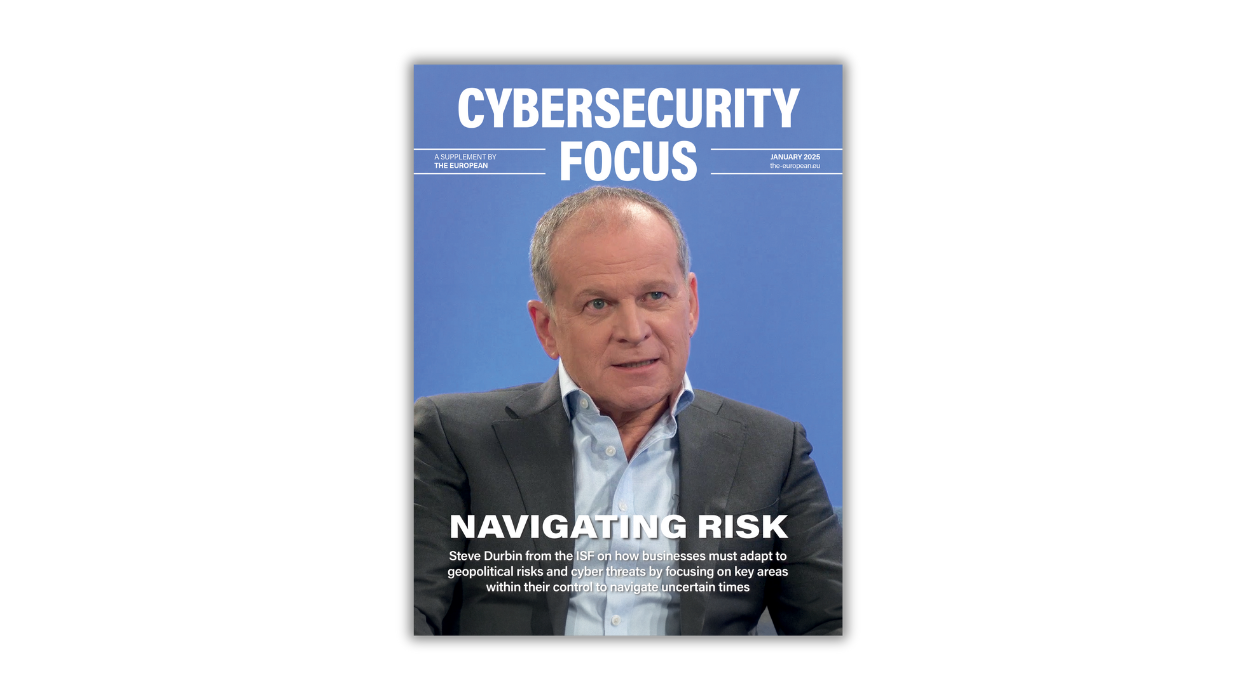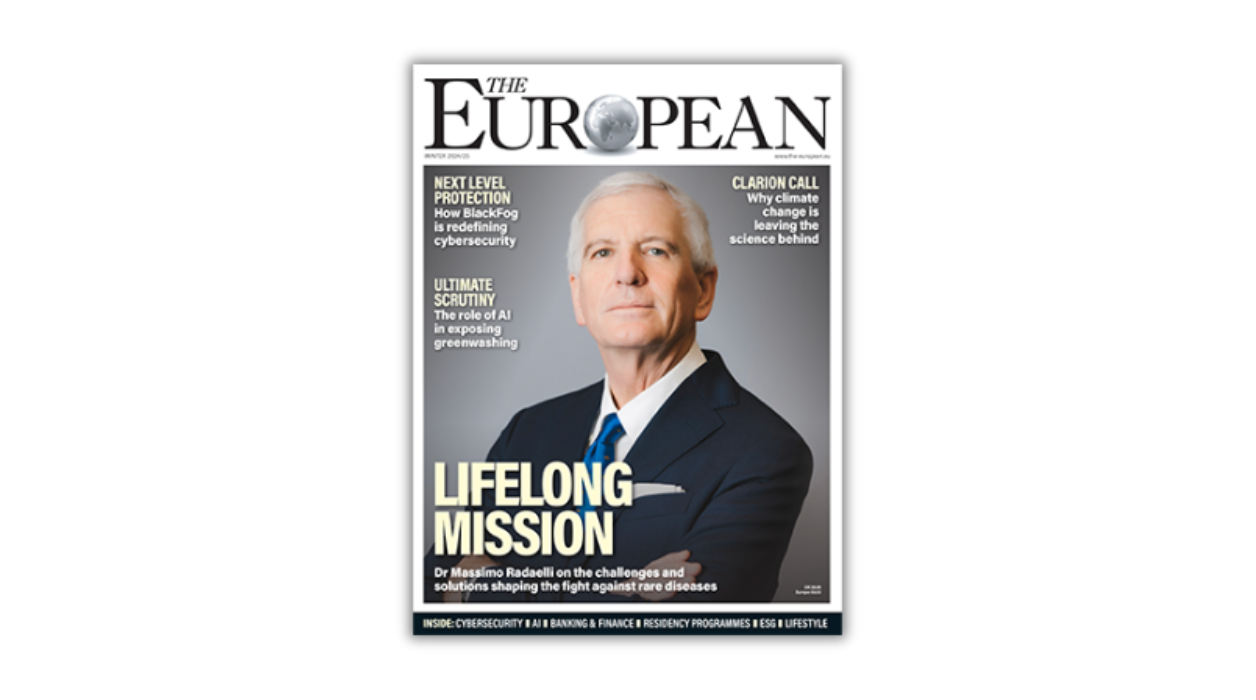How to set up a successful B Corp

John E. Kaye
- Published
- Business, Home, Sustainability

Author and CEO of Cotswold Fayre Paul Hargreaves outlines why better business is not just better for the planet, but for profits too
Humans used to live in communities where they saw how the direct results of their actions and work impacted both those they lived among their environment. However, life has now changed.
Western business needs to carry much of the responsibility, as it is business that has often reinforced the role of the individual over communities. This mindset has been exported all over the world to encourage people to think of themselves as independent, rather than part of a community. And as we have moved towards a global society, the damage our companies do to our planet is out of sight and out of mind – our waste is often someone else’s problem. We have stopped viewing the people within our businesses as people but human resources, commodities to help us with our single aim of advancing profit at all other costs.
B Corps meet the highest standards of overall social and environmental performance and aim to change the world for the better. There are a few key things you can keep in mind, to create a business that as well as being better for people and the planet, will be profitable too.
Personal purpose
It’s all very well being part of a company with a strong purpose but encouraging all our people to have a fulfilled life is equally important. We can learn from the Japanese here – a philosophy from the island of Okinawa where more people live to 100 years old than anywhere else in the world – not a coincidence! They would say that fulfilment, or “Ikigai”, comes from being balanced in four areas. Loving what you are doing, being good at what you do, being paid for it and doing something the world needs. It is this last one that many of us miss out to our own and the world’s detriment.
Create a clear business purpose
In a successful B Corp, C-Suite executives ensure that people come to work with a clear purpose. This is not only better for productivity but also workplace happiness.
It is increasingly important for Gen Z and Gen Y, and as more of them come into the workforce (already more than 50% of the whole) the best talent will increasingly want to work for companies that are helping to bring social justice to the world and positively impacting the climate emergency. They will increasingly prefer not to work for companies who still hold the financial bottom line as paramount.
Getting your priorities right
Every company needs financial sustainability, but in a B Corp, people and planet are put first, and then the profits will follow. When people who work in a ™ company understand this and partake in this purpose, they will be happier. Happier people are more productive people, which leads to greater profits.
It has never been very motivating to work in a company where the CEO is being paid more than 300 times the average worker’s wages – this level of inequality as seen in many of the UK’s FTSE 250 companies breeds discontent and unhappiness. Where making the world a better place comes first rather than directors lining their own pockets, people are less likely to see work as a chore to be endured in order to enjoy their weekends and holidays, they can actually enjoy being at work knowing that the company has a higher purpose than only making profit!
Every year at Cotswold Fayre we email out an anonymous employee survey. One of the more straightforward questions is “Do you enjoy coming to work?” Yes or No. The worst score we have ever had is 94% “Yes” and the best was 100% – that year we did check the “No” button was working! As a consolidator and wholesaler of speciality food, our entire business model is better for the planet, but the people here love being part of an organisation that is doing more than that to make the world a better place. We are a long way from perfect, but we do make progress every year – indeed, we must in order to remain a B Corp where the bar to certification increases each time we certify.
So, yes, being part of a company having a strong positive purpose is important, but we must also look at some of the other disconnects that have been part of the human condition since industrialisation. As businesses, we have encouraged people to have a ‘work face’ and then forced them to fit into a hierarchical structure where creativity is often discouraged, and fun frowned upon. Leaders have often seemed distant and certainly not vulnerable. The inner side of us has been repressed at work and we would do much better to foster an atmosphere where people, including leaders, are encouraged to talk about their fears and express their emotions.

Put environmental responsibilities at the centre
The definition of success for CEOs has been profitability, with no measure given to the damage which could be done environmentally or socially. Both people and planet have been viewed as resources from which to extract, thus adding to the already large profits. Indeed, the very phrase “giving something back” implies they have taken things that weren’t theirs to take in the first place. This is close to the truth.
When our company, Cotswold Fayre Ltd, became a B Corp back in 2015, we had already put sustainability at the core of our business. In addition to passing a rigorous certification process to measure how good we were for the world; we changed our Company Articles. We no longer legally exist just to benefit our shareholders but also all of our stakeholders, including our supply chain, our workers, the local community, and of course, the environment and planet, and there are 650 other companies in the UK that have done exactly the same.
As a B Corp, we produce an Impact Report each year and send it to our stakeholders and over the past two years this 20-page document has become one of our best marketing tools – not the motivation for printing it, of course. Customers increasingly want to work with companies that are doing their best to make a positive impact. Our company secured to large amounts of business within the last year worth several million pounds, where our position on environmental issues was a significant factor for those making the buying decisions.
When companies put people and planet before profits, maybe paradoxically for some, extra profits follow. People will detect when a company director is trying to look more sustainable, but really only wants profits – I heard one such CEO of a large fashion brand on the radio recently. When genuinely compassionate leaders put the planet before their own need for material wealth and status, we will have more successful businesses and may avert the climate crisis that is surely coming otherwise. Better business is not just better for the planet but for profits too.
About B Corp Certification
B Corp Certification is a designation that a business is meeting high standards of verified performance, accountability, and transparency on factors from employee benefits and charitable giving, to supply chain practices and input materials. In order to achieve certification, a company must fulfil a number of environmental, legal and transparency requirements.
For further information:
www.bcorporation.net

Paul Hargreaves is a speaker, a B-Corp Ambassador, and author of ‘The Fourth Bottom Line: Flourishing in the new era of compassionate leadership’ which is available from Amazon.

RECENT ARTICLES
-
 Managing cross-border risks in B2B e-commerce
Managing cross-border risks in B2B e-commerce -
 Research highlights rise of 'solopreneurs' as technology reshapes small business ownership
Research highlights rise of 'solopreneurs' as technology reshapes small business ownership -
 Human resources at the centre of organisational transformation
Human resources at the centre of organisational transformation -
 UK government sets up Women in Tech taskforce amid gender imbalance concerns
UK government sets up Women in Tech taskforce amid gender imbalance concerns -
 Liechtenstein lands AAA rating again as PM hails “exceptional stability”
Liechtenstein lands AAA rating again as PM hails “exceptional stability” -
 The Parisian business school quietly reinventing the MBA
The Parisian business school quietly reinventing the MBA -
 UK entrepreneur who founded £1bn firm acquires UAE amateur golf leader to launch world amateur Super League
UK entrepreneur who founded £1bn firm acquires UAE amateur golf leader to launch world amateur Super League -
 Why your home is the best place to teach children leadership
Why your home is the best place to teach children leadership -
 Inside the Spring 2025 Edition of The European
Inside the Spring 2025 Edition of The European -
 The Paris MBA designed for real-world leadership
The Paris MBA designed for real-world leadership -
 Soft2Bet reflects on eight years of leadership and philanthropy in new film featuring CEO Uri Poliavich
Soft2Bet reflects on eight years of leadership and philanthropy in new film featuring CEO Uri Poliavich -
 Global Banking School celebrates ‘milestone’ anniversary
Global Banking School celebrates ‘milestone’ anniversary -
 Saudi Arabia hosts the fourth Riyadh International Humanitarian Forum
Saudi Arabia hosts the fourth Riyadh International Humanitarian Forum -
 New York Congresswoman pushes for Trump’s birthday to be enshrined as federal holiday
New York Congresswoman pushes for Trump’s birthday to be enshrined as federal holiday -
 Red light, green bite: Netflix restaurant opens in Vegas
Red light, green bite: Netflix restaurant opens in Vegas -
 Read our Cybersecurity Focus supplement, featuring insights from Information Security Forum
Read our Cybersecurity Focus supplement, featuring insights from Information Security Forum -
 Davos World Economic Forum 2025: Collaboration for the Intelligent Age
Davos World Economic Forum 2025: Collaboration for the Intelligent Age -
 The European releases its Winter 2024/25 edition
The European releases its Winter 2024/25 edition -
 Read our FDI Focus supplement, featuring insights from Michael Lohan of IDA Ireland
Read our FDI Focus supplement, featuring insights from Michael Lohan of IDA Ireland -
 PizzaExpress to Expand Dough Base Stateside
PizzaExpress to Expand Dough Base Stateside -
 The two core skills middle managers need to navigate stormy weather
The two core skills middle managers need to navigate stormy weather -
 The Role of Financial Regulations in the Online Casino Industry
The Role of Financial Regulations in the Online Casino Industry -
 How to become a game-changer
How to become a game-changer -
 Taking the risk out of BOP ventures
Taking the risk out of BOP ventures -
 Releaf leading the way with marketing
Releaf leading the way with marketing



























